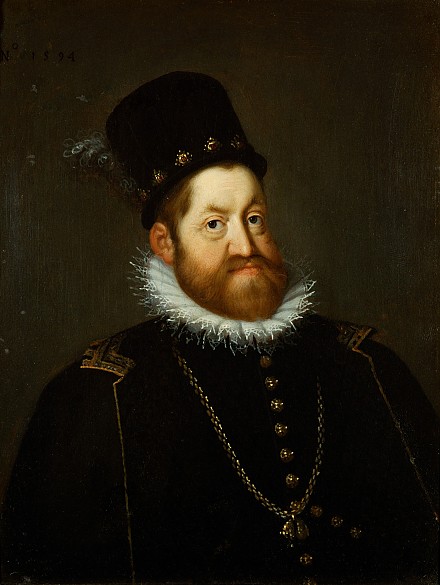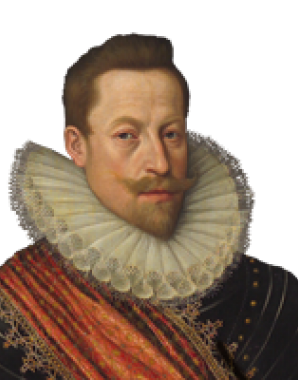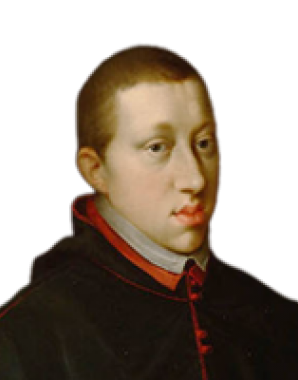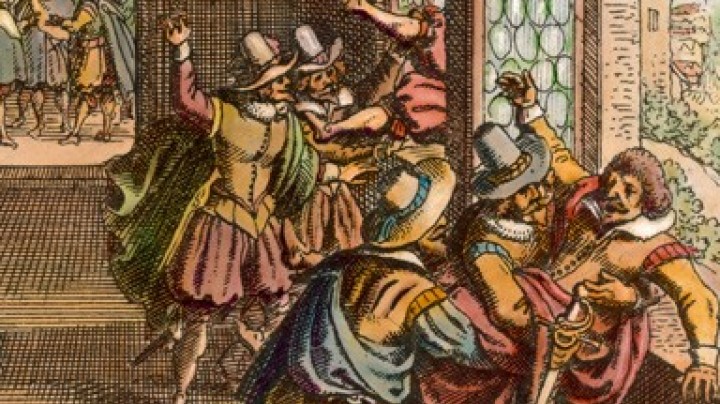Rudolf II: mental problems and gradual loss of power
From around 1600 Rudolf’s reign was increasingly overshadowed by his mental problems. Today these would probably be diagnosed as resulting from inherited schizophrenia and alcoholism. From 1606 the emperor was de facto incapable of ruling. He believed he was possessed by demons or had been bewitched, and at times was suicidal.
He surrounded himself with a circle of confidants who had enormous influence on his decisions but from whom he was capable of withdrawing his favour in an instant. Rudolf developed a pathological mistrust of those around him and appeared in public ever more rarely. He hid himself away with his collections, escaping at times into a world of fantasy.
Since he baulked at marriage, the issue of the succession became ever more pressing. Rudolf refused to discuss the matter, however, with the result that his brothers and other relatives agreed on a settlement behind his back in 1600. Matthias, Rudolf’s next eldest surviving brother, became the compromise candidate. Openly hostile towards the emperor, Matthias was a controversial character and little suited to the role.
In the Bruderzwist (fraternal conflict) in the House of Habsburg, the faction grouped around Matthias took the helm. The personal aversion between Rudolf and Matthias flared into open conflict. Matthias launched a putsch against his brother which Rudolf was powerless to resist. The Treaty of Lieben in 1608 transferred power to Matthias in Hungary, Moravia and in Lower and Upper Austria. Rudolf was only able to preserve his rule in Bohemia, Silesia and Upper and Lower Lusatia.
The price for the preservation of Rudolf’s power in Bohemia and the loyalty of the Estates was the Letter of Majesty promulgated in 1609. This contained wide-ranging – and from Rudolf’s perspective humiliating – concessions to the aristocratic opposition, particularly in religio-political matters.
During this decisive phase Rudolf’s behaviour became increasingly erratic. Tormented by anxiety and uncontrollable outbursts of rage, he plotted his revenge but made a fatal mistake. In February 1611 he communicated with his cousin, Archduke Leopold, who was bishop of Passau. With the aid of foreign mercenaries recruited by Leopold the emperor hoped to restore his stricken authority in Bohemia. However, the invasion of the Passauer Kriegsvolk, as this body of mercenaries came to be known, spiralled out of control. The men began to plunder and pillage in Bohemia and the enterprise ended in a fiasco. The Bohemian Estates withdrew their support from Rudolf, leaving the emperor completely isolated. As a sign of his ultimate defeat he was forced to look on as his hated brother Matthias was crowned king of Bohemia in Prague in 1611. Rudolf now only retained his position as emperor, which was, however, merely an empty title without any real basis of power. Deprived of power and seriously ill, the emperor lingered on in the royal castle at Prague for a few more months before dying at the beginning of 1612. Rudolf was buried in the royal crypt in St Vitus’s Cathedral in Prague.














